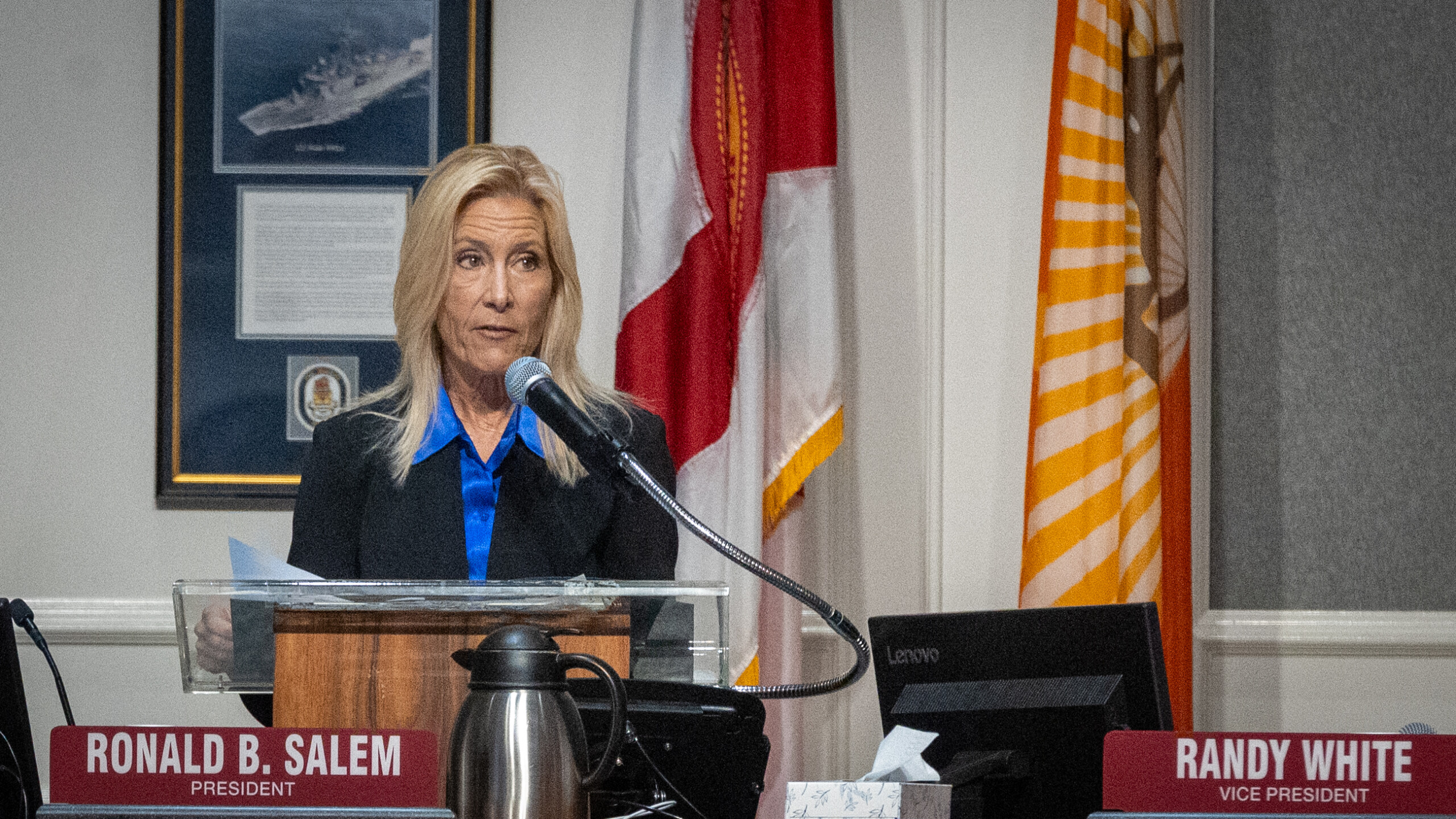Officials in the mayor’s office are experimenting with artificial intelligence, specifically how it could help find efficiencies, stop overspending and aid in building the city budget.
In January, as the officials looked toward the 2025-26 budget process, the Deegan adminisation entered into a contract with enterprise AI provider C3.ai Inc. A pilot program will use AI to analyze three of the city’s biggest departmental budgets: Public Works, Public Libraries, and Parks, Recreation and Community Service.
The pilot contract also includes a plan outline for an AI-enabled residential property appraisal application for the Duval County Property Appraiser’s Office. Officials say AI could generate faster and more accurate property valuations and better project the city’s revenue from property tax collection.
AI is already integrated into many of the enterprise programs the city uses on the daily basis, but Jacksonville is one of the first cities in the country to use AI to help draft a budget.
Mayor Donna Deegan told Jacksonville Today that using generative AI will allow city finance officials to analyze financial data in real time instead of waiting for quarterly reports.
She says AI models can locate duplications in the city’s vendor contacts across departments more efficiently, isolate overspending and result in more “nimble” financial decision-making.
“This is just a tool in that shed. It’s a powerful one, though, that allows us to manage taxpayer dollars with greater precision and helps us identify inefficiencies and forecast financial needs, and it helps us to optimize spending in ways that really weren’t possible without AI,” Deegan said.
Budget patterns
Wanyonyi Kendrick, the city’s chief information officer, says prior administrations have overbudgeted or had “significant spends” at the end of a fiscal year as a practice.
Deegan hopes the city, by using AI, will be able to better predict costs, as well as consolidate some vendor contacts across the city.
“An interesting trend is around our larger vendors that they may not charge us consistently for similar work in different parts of the city,” Kendrick said. “So that’s the kind of analysis that is really difficult for a human to do, but a large AI solution can ingest that information and then provide us data for decision-making purposes.”
Officials provided C3.ai three years worth of revenue and expenditure data from the three city departments, Kendrick said.
Parks, Public Works and Libraries, the three departments included in the pilot, had operating budgets of $58.9 million, $68 million and $40.86 million, respectively, in the 2024-25 fiscal year.
Kendrick said the AI system will look for spending patterns that officials in the mayor’s office will use during the budget cycle.
The property appraiser will test how well AI can aid with forecasting to better understand trends in the budgeting process, but the city’s chief communicaitons officer, Phil Perry, said in an email that any revenue-related analysis would remain on the city government side of the contract.
According to Perry, information generated by the property appraiser’s AI pilot would allow the city to more effectively budget for services like paving roads, filling potholes, reducing homelessness, cleaning up blight at supporting small businesses.
“The Property Appraiser’s Office remains steadfast in its mission to produce a fair and equitable tax roll, ensuring transparency and fairness for all,” Property Appraiser Joyce Morgan said in an email. “As part of our commitment to continuous improvement, we are currently in an exploratory phase of assessing new Al technologies. We are actively examining how these tools can be leveraged to enhance efficiency while maintaining the highest standards of accuracy and equity.”
Artificial intelligence partnership
The contract and invoice documents provided by the city show Jacksonville is spending about $9,500 on the three-month pilot with C3.ai.
The total price for the three-month pilot is higher at $500,000, but the city received $450,000 from Microsoft Corp. and $40,500 from C3.ai in credits to help defray the costs.
It covers three pilots projects with Jacksonville, one related to revenue, another to expense, and the third to resilience, Kendrick says.
The Redwood City, California-based AI provider and Microsoft expanded its partnership last year to integrate AI into the Microsoft Azure platform, which also provides cloud and data hosting services for the city.
Kendrick says, if the pilot shows results, the Deegan administration would explore a more long-term contact, which would need support of City Council.
The partnership could also be a proving ground for C3.ai to expand AI use in the public sector.
“C3.ai also recognizes the potential partnership they can have with a city of our size to potentially build a whole portfolio of AI solutions,” Kendrick said.
‘Not looking to reduce our workforce’
Deegan says her office is communicating with city employees about expanding the use of AI and assuring city workers this is not an avenue to replace or eliminate jobs.
But efficiencies gained in the budget process could allow the city to better understand which departments need more personnel and what vacancies can be left unfilled.
“If we end up with vacancies in a certain place, do we need to fill those vacancies? We’re not looking to reduce our workforce, but we are looking to retrain and retool and make sure we have people in the best places, and make sure that we can be as efficient as possible with our personnel,” Deegan said.
That communication will extend to council members and the Council Finance Committee once the AI pilot produces hard budget data to share, Deegan said.
Efficiency and city budgeting has taken center stage in recent months as the Deegan administration has launched its 904 LEAN program to help streamline permitting and other city services, and council member Ron Salem’s examination of city expenditures with his Duval DOGE committee.
“I know that there’s always a concern with AI that you’re looking to make staff smaller, but that’s not the case for us,” she said. “We just want to make sure where we get to the point where we are using our people in the most optimal ways. We may get to the point where we’re looking at a vacancy pool and say, ‘You know, we really don’t need those positions that have been vacated.’”
As part of the pilot, the city will soon launch an AI transparenacy dashboard, Deegan said, similar to its permitting, animal care and public works dashboards that went live earlier this year.
‘Low-hanging fruit’
Jim Taylor, president and CEO of the nonprofit Florida Technology Council, says Jacksonville is one of four U.S. cities piloting AI’s use to improve the municipal budget process — the other three are in California and Pennsylvania.
“What they’re doing is pretty much leading the nation in this area. Most of the nation is just kind of dipping their toes in this right now and focused on AI from a scary standpoint,” Taylor said.
In the last two to three years, private sector companies have been integrating AI into daily operations from the C-suite to entry-level jobs.
The manufacturing and agriculture industries have also benefited from using AI to make automation more intuitive and efficient.
But Taylor said the nature of government data, which can include confidential and personal information, has made the public sector slower to adopt the technology.
The Florida Technology Council does not lobby on behalf of tech companies or the tech industry. The nonprofit describes itself as a think tank called on as experts to educate state legislators and agencies and local governments on cyber security, artificial intelligence and technology integration.
For expample, the council conducted the most recent AI training for the Florida House of Representatives, Taylor said.
The organizations encourages governments to have a proper AI policy for its employees and put of proper guardrails to protect private data.
The council’s staff have not talked directly with Jacksonville officials about the AI pilot but are familiar with what the city plans to do.
Taylor says Jacksonville’s budget process will use AI for research, provide data and make recommendations. But that’s where the AI stops and humans will take the budget the rest of the way.
“What we’re seeing Jacksonville do is kind of hit those low-hanging fruit areas. That’s why they’re starting out with a pilot in those three areas. … If you look at their focus, what they’re trying to do is create a zero budget structure,” Taylor said.
“You’re able to go through volumes of data when you use artificial intelligence to look and find. Are there repeat expenditures in here? Are there things that are supposed to be paid but they are not?” Taylor said. “You’re able to look at so much more in a shorter period of time that it really is making a massive difference for our cities.”
Taylor said AI may reach a point where city governments can use what is call agenic AI to actual draft budgets.
“It truly looks like we can. We’ve got a long ways to go, long ways to go in tech and in trust. So it’s not just the technology,” Taylor said.







